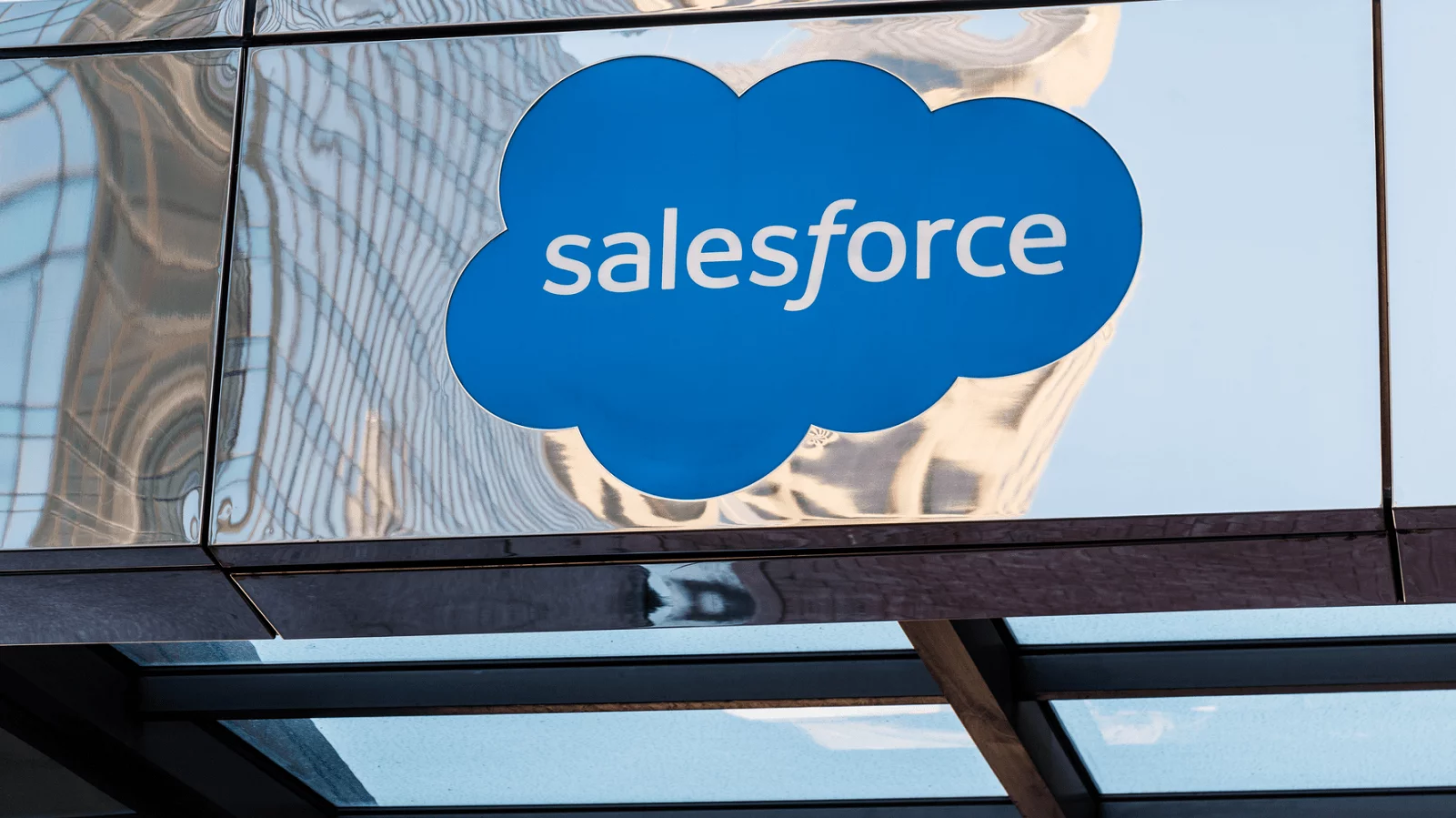The latest 2021 Salesforce B2B Commerce Cloud Review
Salesforce Commerce Cloud has been one of the fastest-growing pioneers in the B2C SaaS Commerce Cloud. However, that is not all it gets as Salesforce has released its B2B Commerce Cloud with unique features that accelerate B2B business goals. Let’s check out our in-depth thoughts on B2B Salesforce Commerce Cloud to find if it is tailored to your enterprise’s needs.

1. Selective Best Features from B2C Commerce Cloud
After being acquired by Salesforce, B2B Salesforce Commerce Cloud, previously CloudCraze, now inherits several significant features from the platform, making it one of the most potent B2B Commerce systems available worldwide.
- SaaS-based Quick Implementation: Thanks to the fact that Salesforce Cloud Commerce is a fully-hosted SaaS, clients save a lot of implementation time as there is no need to build a whole new system. Business can effortlessly deploy their B2B Commerce in around a week and reap all the benefits for a lifetime. Moreover, since the Salesforce team will be responsible for handling their system, enterprises will not have to worry about dealing with technology, saving both money and personnel resources.
- Merchandising: Storefront managers can quickly and easily build storefronts with drag-and-drop components and create an entire eCommerce site with Experience Builder using clicks, not code.
- Catalog Management: B2B Salesforce Commerce enables Complex Product Support, which means objects such as the cart, product, and category objects, are uniform across Salesforce, so storefront managers or admins only have to create them once.
- Internationalization: The solution empowers administrators to modify and manage their multiple storefronts from one single back-end.
- Omnichannel Optimization: Understanding the modern B2B sales process is no longer solely about representatives interacting with each other; the solution centralizes all sales channels, including physical stores, eCommerce, mobile, and social media platforms, helping increase touchpoints with customers across channels and persuade them to buy the product.
- AI Empowerment: The Salesforce platform for B2B eCommerce businesses comes embedded with Einstein AI, a next-generation AI platform that helps you harness your data and extract actionable insights for decision making, personalized shopping experiences, securing customer loyalty, and automating tasks.
Detailed reviews of these features have been made in our previous study of B2C Salesforce Commerce Cloud. Please check it out for a full understanding of what is coming for your B2B Commerce system.
2. System Security
Salesforce B2B Commerce Cloud operating on the cloud and serving clients with high-value purchasing orders have also made security the platform’s primary focus to protect customers worldwide and ensure clients’ business is in safe hands. They have imagined every scenario possible to set up the highest security rank to guard against competitors’ intrusion, internal and external disasters, etc.
- Security Policies and Procedures: Seven policies mentioned in this section mainly demonstrate how the platform’s system would react to certain situations regarding the user’s password. It goes from the moment the user generates new passwords to when the password is lost and how to respond if questioning suspicious log-ins, etc.
- Intrusion Detection: Salesforce states that they use network-based and/or host-based intrusion detection mechanisms, along with selective data collection of users’ activity to prevent intrusion.
- Security Logs: Firewalls, routers, network switches, and operating systems, log information to their respective system log facility or a centralized Syslog server are used for security reasons.
- Incident Management: They will solve the incident and notify clients of them under their respective Customer Data by Salesforce or its agents of which Salesforce becomes aware, to the extent permitted by law.
- User Authentication: Access to B2B Commerce Services requires authentication via one of the supported mechanisms, including user ID/password, SAML based Federation, OpenID Connect, Oauth, Social Login, or Delegated Authentication as determined and controlled by the customer.
- Physical Security: The platform’s facilities are designed to withstand harsh weather and any predictable environmental conditions. They are secured by around-the-clock guards, interior and exterior surveillance gadgets.
And many more data regulations and requirements can be found at B2B Commerce Trust and Compliance Documentation. It is worth spending time reading this as it can be useful in enabling swift response towards dangerous situations that arose.
3. Wholesale Features
Salesforce B2B Commerce Cloud has been developing several solutions that are unique for their clients and deliver an effortless experience for site managers and B2B customers. Here are some of the best features the platform offered:
a. Account-specific custom catalogs
B2B Enterprises often owns a massive range of products and items which are variable to each buyer’s needs. Therefore, Salesforce B2B Commerce Cloud provides customer-specific catalogs. For B2B clients needing a unique setup of products so unique that they cannot be built into the existing products, your Salesforce B2B Commerce Cloud can show products that are only available to specific customers. This also allows your business to explore listing a personalized product catalog for larger clients. For example, corporate uniforms or apparel can require listing products with your client’s logo instead of the generic version of the product.
Moreover, the customization of pricing is also available on the Salesforce B2B system. B2B enterprises can set different prices based on country, region, or account type, customer type. The platform gives you the flexibility to control pricing rules to reflect pricing structures based on segments, tiers of customers, or subscriptions. The B2B Salesforce platform supports four typical different price book for flexible pricing:
- Standard price book—The standard price book is global and contains all your products. It’s not associated with a store or buyer group. A product must be listed in the standard price book before you can list it in another price book.
- Store price book—Store price books are associated with a store and contain default prices that apply to all buyers.
- Buyer group price book—Buyer group price books have prices that apply to a specific buyer group.
- Price book for the original price—Price books for the original price show the original price of a product. The price is struck out to indicate that a new price is being offered. The displayed price is for display purposes and not used for calculations.
b. Negotiated pricing
The third and final phase involves the buyer making their choice of vendor and going through with their purchase. Negotiating the buying price is part of this phase. Still, it shouldn’t be the only strength you have versus other sellers: you need to establish yourself as the best option during the evaluation phase through the information and content available on your eCommerce website.
Therefore, Salesforce B2B Commerce Cloud creates a corresponding lead or opportunity record, depending on whether the buyer is a guest or an authenticated user. B2B enterprises can configure certain options for the quote request, such as which buyers can complete the request and what information is required in accordance with the following process:
- A Request for Quote link appears among the options on the Shopping Cart page:

- When a buyer clicks the link, the Request for Quote window opens. The window is automatically populated with values from the buyer’s user record. You can configure the following options for this window:

- After the buyer submits the request, B2B Commerce creates a corresponding record, the value of which is based on the cart’s subtotal:
- If a guest buyer submitted the request, B2B Commerce creates a lead record.
- If a registered buyer submitted the request, B2B Commerce creates an opportunity record.
c. Complex shipping options allowing multiple off-loading locations and dates
The Salesforce B2B Ecommerce Cloud enables complex shipping options to maximized each buyer’s satisfaction and shorten the negotiation process. During checkout, B2B Commerce calculates the cost to ship an order based on the weight of items in the buyer’s shopping cart. You can specify your own shipping rates and carrier details. To apply a shipping rate to a product during checkout, add a shipping weight to a product record. Furthermore, when the line-level independence (LLI) is turned on, a buyer can split an order by sorting items in the cart into multiple shipping groups. As the admin, you can configure specific options for how a buyer sets up their shipping groups.
This shipping process is tailored to the very detailed step helping the ordering steps can be completed with the most complicated requirements.
- When a buyer first begins LLI checkout, the following shipping group options are available in the Shipping Details section:

- When a buyer moves selected cart items to another shipping group (3, 5), the Change Items Shipping Address window opens and contains the following options:

- When a buyer clicks the Add Shipping Group button (6), the Add New Shipping Group window opens and contains the following options. This window also opens when a buyer selects New Shipping Group from the Select Group picklist (9) in the Change Items Shipping Address window.

- For each shipping group, a buyer can specify unique shipping options in addition to a unique shipping address:

d. Multiple payment options like purchase orders, credit cards, and automated clearing houses (ACH)
Provide an efficient and trusted interface for a buyer to specify their payment details during checkout. In the Checkout page’s Payment section, you can allow a buyer to manually enter payment information or select a stored payment option already defined.
The Payment section of the Checkout page can show the following options for either standard checkout or line-level independence (LLI) checkout.
- Standard checkout:

- LLI checkout:

4. Final Thoughts
Staying in the industry for more than two decades, Salesforce has foreseen critical changes and accumulated the most experience with the B2B commerce solutions. Moreover, Forrester Research has positioned Salesforce Commerce Cloud as a leader in The Forrester Wave™; Salesforce B2B Commerce tied for the top scores in the criteria of business intelligence and analytics, AI and machine learning, and delivery and extensibility ecosystem. Such capabilities are rare to find and surely worth any scaling B2B enterprises’ trust.
Along with 12-year long-standing eCommerce expertise, SmartOSC leverages unique and efficient Salesforce B2B Commerce Cloud capabilities to provide full-service solutions including Consultation, Development, Platform Implementation tailored to B2B business requirements, creating a seamless experience. Contact our specialists now for the best-in-class Salesforce B2B Commerce Cloud integration and optimization.


